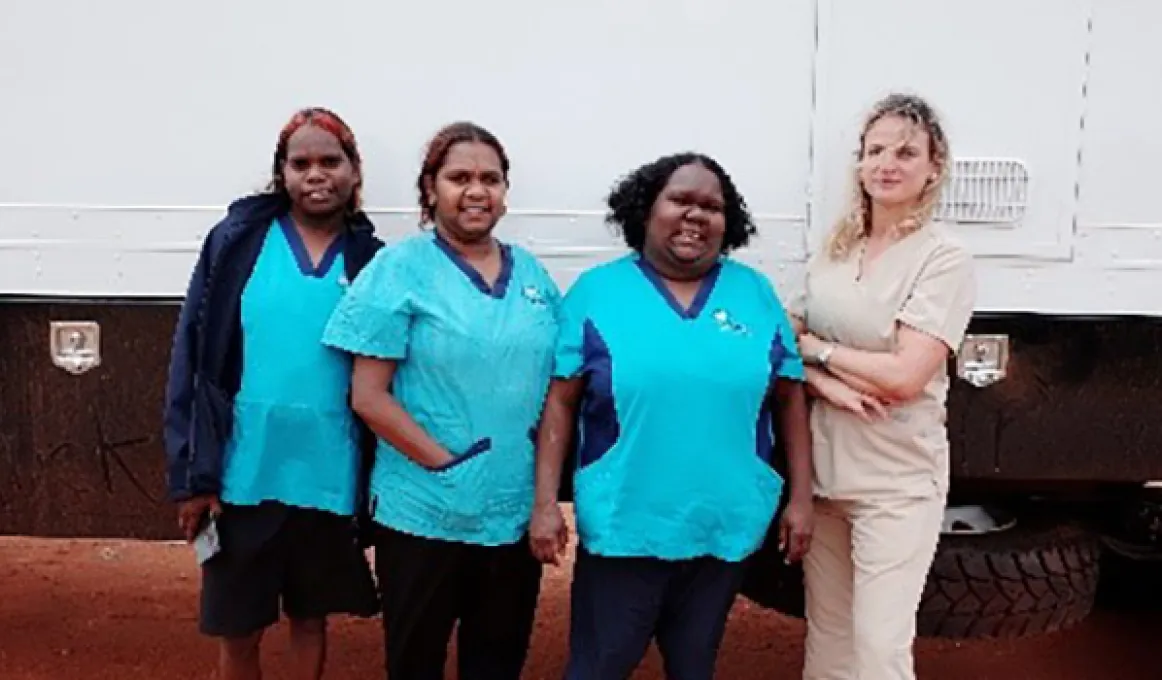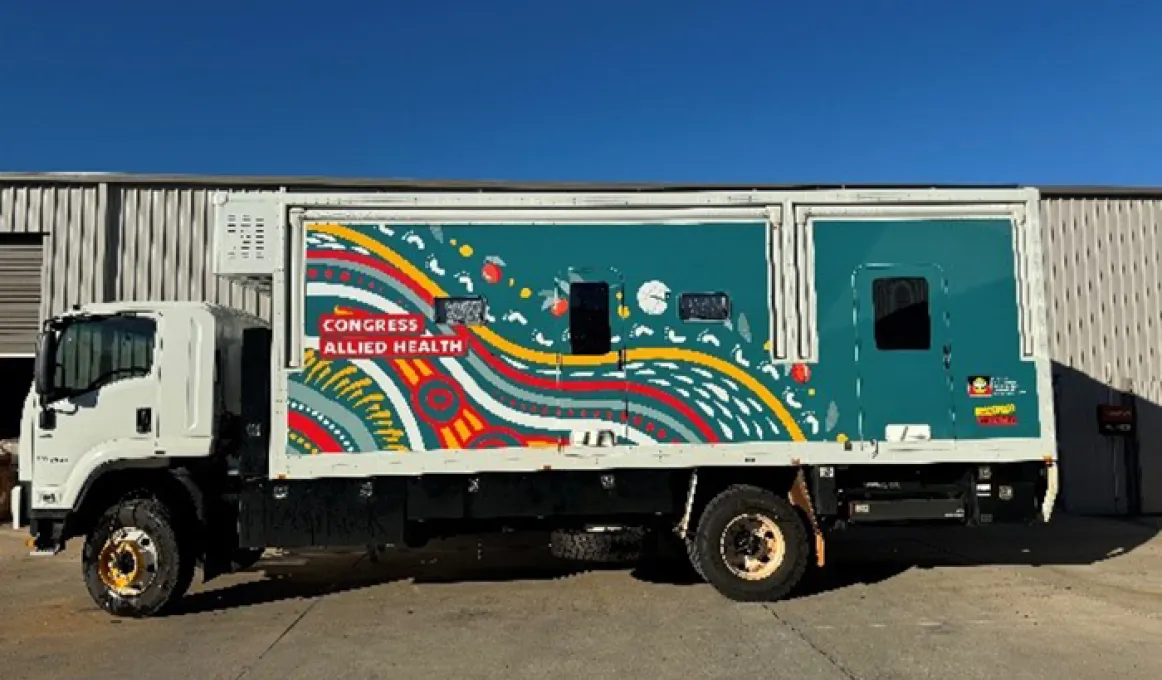New mobile clinic supporting better health outcomes in remote communities


With a steadfast commitment to better health outcomes for First Nations people, the Australian Government has invested $456,000 to unveil a ground-breaking initiative: a new mobile clinic aimed at transforming healthcare access in remote communities
With a steadfast commitment to better health outcomes for First Nations people, the Australian Government has invested $456,000 to unveil a ground-breaking initiative: a new mobile clinic transforming access to healthcare in remote communities.
The need of access to healthcare is great. Over the past 25 years, the Central Australian Aboriginal Congress (Congress) has witnessed a 67 per cent increase in Type 2 diabetes cases in Central Australia.
The new Congress mobile allied health clinic addresses this growing need, providing regular diabetes education and podiatry outreach services to support stronger health outcomes.
Congress Allied Health Manager, Andrew Jolly reflects on this milestone.
‘We’re proud to deliver services using the mobile clinic, which enables our allied health professionals to deliver specialised diabetes management and support that is accessible for Aboriginal people living in remote communities.’
Urapuntja Health Service, located some 270 km north-east of Alice Springs and its CEO, Melissa Hinson believes the mobile clinic will provide the kind of service delivery the community has been asking for.
‘The future of medicine in our region is anchored in accessible service delivery that respects community needs, we know that people in our setting need health services delivered in the community they call home, and this new service does just that,’ she said.
The new custom-built 4WD clinic provides two comfortable, private and wheelchair accessible treatment areas.
From Amoonguna to Utju, covering hundreds of kilometres across Central Australia, the Congress mobile allied health clinic traverses the rugged terrain visiting eight remote communities every eight weeks, a frequency which meets international standards for follow up.
The mobile clinic is staffed by a podiatrist and diabetes educator, who are in the community for 3 to 5 days. The service offers podiatry consults, diabetes education and support to clinic staff.
Education on diseases and focused foot checks and wound management, ensure better support for community when the mobile health clinic is in other regions.
The Congress mobile clinic works in partnership with other Aboriginal Community Controlled Health services in the region - Pintupi Homelands Health Service, Ampilatwatja Health Centre and Urapuntja Health Service.
For Nellasha Stirling, a trainee at Urapuntja Health Service, a mobile health clinic will be of significant benefit. ‘A truck like this is important to help Indigenous people with diabetes, to be seen in their community, people often don’t have transport to get to clinic or town appointments.’
Nicole Jones, another trainee, emphasises, ‘Sometimes for people, they don’t want to go to a new place, in a new environment. They want to stay where they know the lands. It’s alright when you have the truck there in their community.’
Through collaboration and innovation, the mobile clinic also fosters long-term education and jobs.
Professional development opportunities for remote health care workers are provided, further strengthening diabetes management and awareness in remote communities.
Tessa Ross, a trainee at Urapuntja Health Service, reflects on the learning opportunities it brings.
‘Urapuntja clinic staff can use the truck and join the visiting health people, learning new skills to use in the community.’
The initiative was funded though the Aboriginal Benefits Account and supports the Australian Government's continued commitment to Closing the Gap on health and life expectancy, while supporting efforts to provide First Nations people in remote communities better access to specialised health care.
Find out more
The initiative was funded though the Aboriginal Benefits Account and supports the Australian Government's continued commitment to Closing the Gap on health and life expectancy, while supporting efforts to provide First Nations people in remote communities better access to specialised health care.